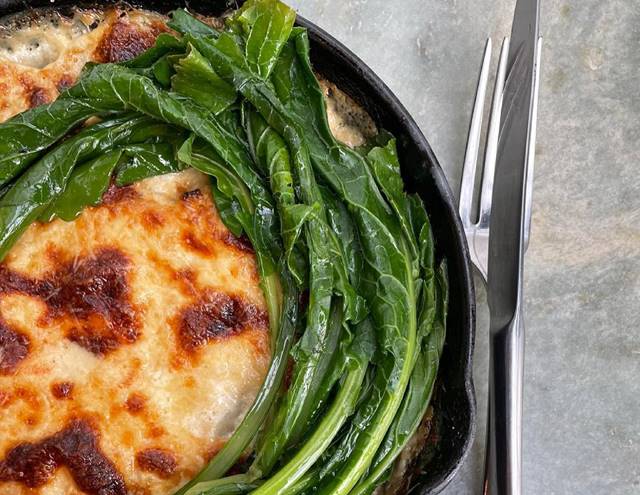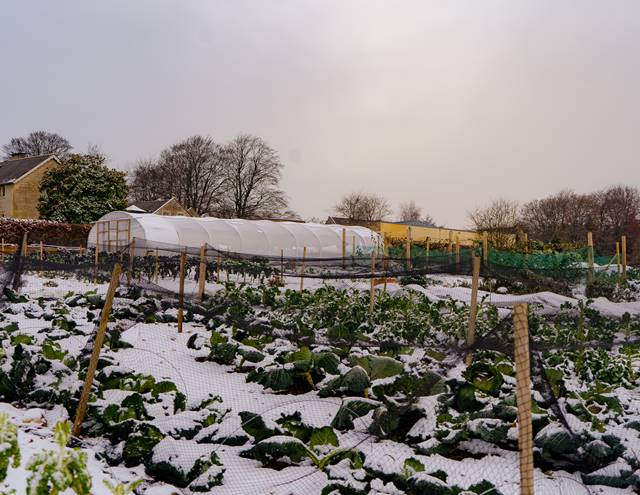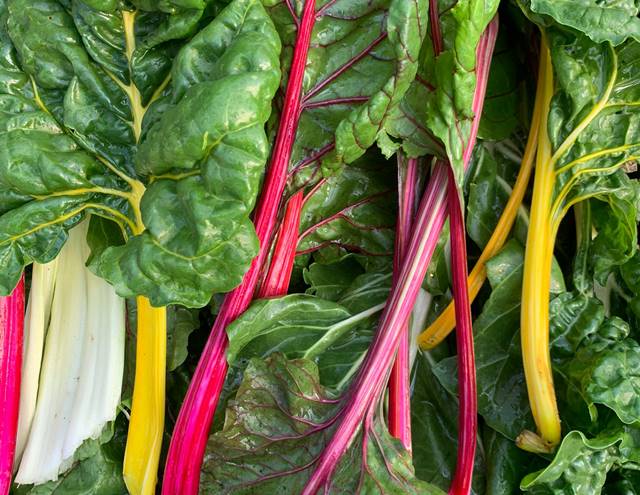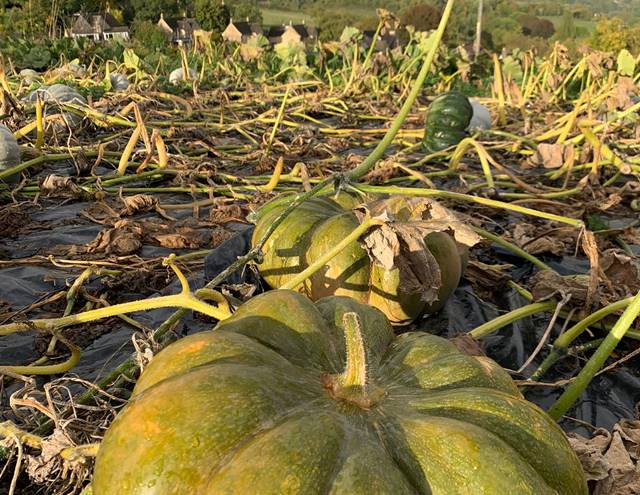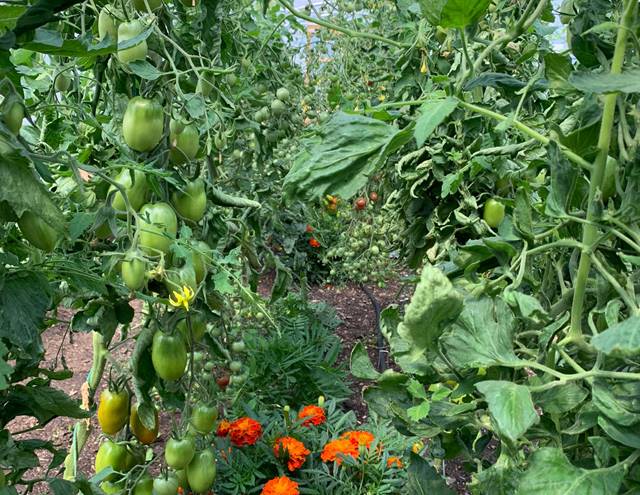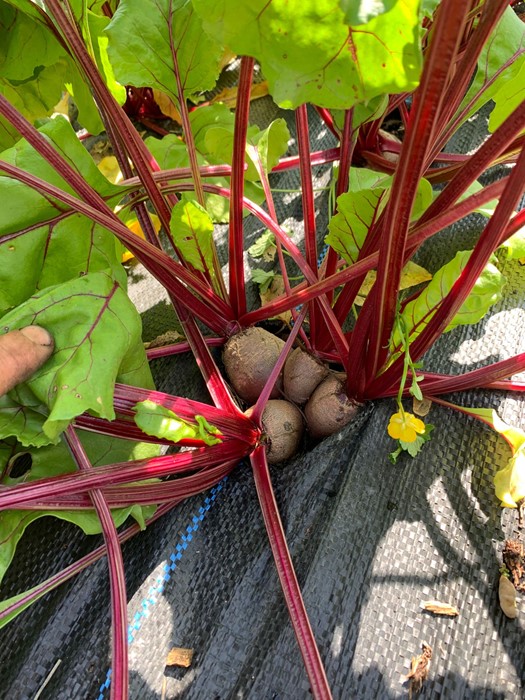
Growing through ground cover was also a winner when it came to harvesting potatoes. We had great success growing first earliest through black plastic, the covers keeping in the moisture from the winter months and blocking out the sunlight as the tubers broke the soil surface preventing them from turning green. Second earlies were stunted slightly by the lack of rain in June and the covers made it harder to water the plants properly but I would still choose this method over digging trenches.
I have concluded that through the growing season, there is no benefit to keeping beds bare. They should have crops in or be covered, anything else creates more work.
Despite the rain clouds it's a jungle in the polytunnels now with tomato plants already hitting the roof. As the weather is so changeable I have already cut the top off some plants to encourage the plants to finish fruiting rather than make more flowers. I'm also very concerned there is a strong chance of blight taking hold in these wet and warm conditions. I have forced myself to remove 5 plants suspected of carrying the fungal disease, something I struggle to do after caring for them for the last 5 months.
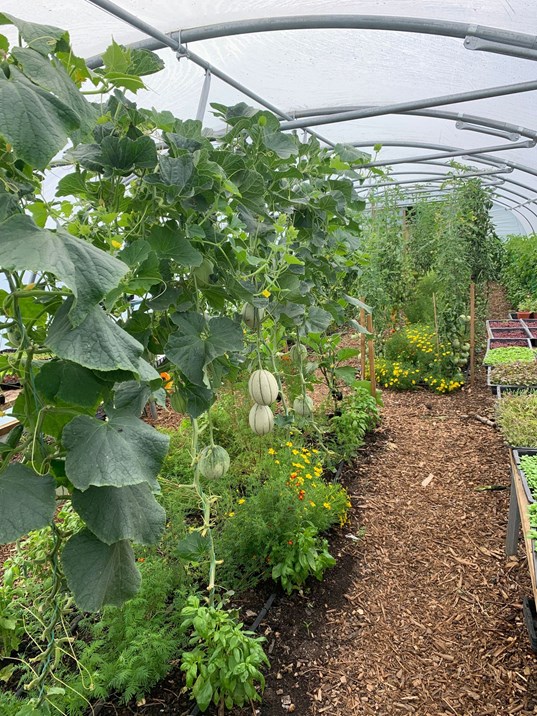
We are getting some fantastic fruit though with the most amazing colours, shapes and most importantly flavours, something that will only improve if we ever get some warmer weather.
Elsewhere in the tunnels, as these are the months where they shine, aubergines are emerging and we are harvesting our first-ever Padron peppers. These have been a staple on the summer menus at Homewood so it brings me great joy to be able to supply the kitchen with our own, the freshness bringing a whole new level of flavour to them.
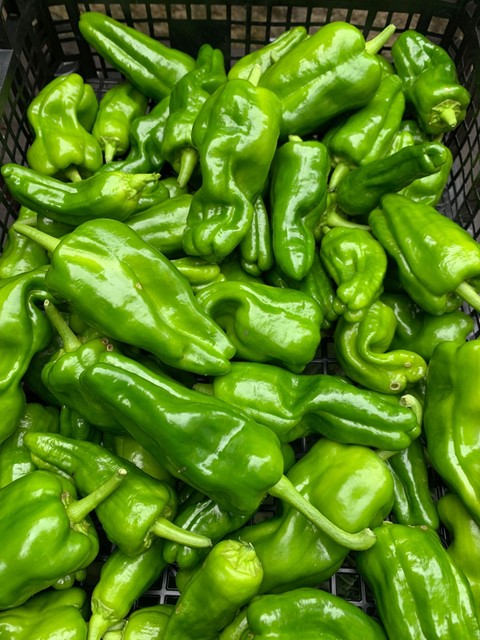
On the theme of flavour, I have to mention the dragon cucumbers.
Worlds away from the bland, watery intensively-farmed cucumbers grown for yield, these thick, spiky cucumbers stand out for their small seeds, incredibly crunchy flesh and intensely concentrated flavour. I only have about 6 plants as I struggled to get the seeds to germinate well so I don’t have a huge crop especially when some of them make their way to my fridge at home.
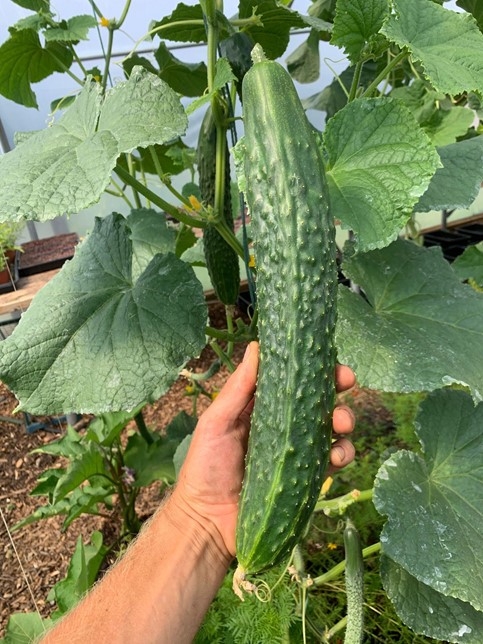
The sowing timetable switches now to crops for darker and much cooler days of autumn and winter such as spinach, kohlrabi, winter radish and mustard-type salad leaves like rocket and land cress. All crops Im very much looking forward to welcoming back to the garden
I have heard from many visitors to the garden that Brassicas top the list of toughest crops to grow. If you can keep insects off summer brassicas, they can grow exceptionally fast this time of year and will provide the majority of your harvest in the late autumn months. I use mesh or fine black netting, the holes need to be small enough to keep out the main offender, the cabbage white butterflies.
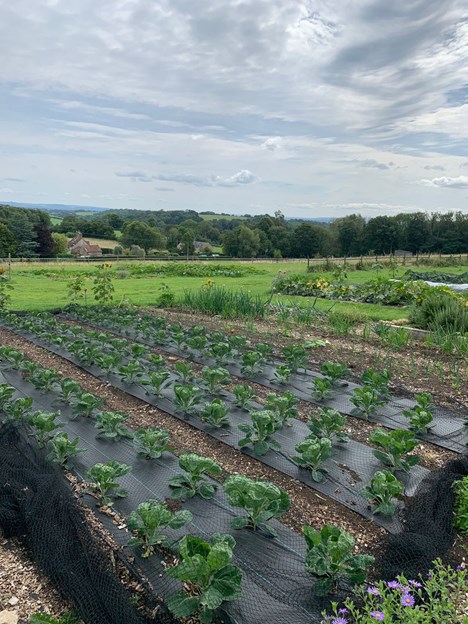
Undoubtedly some will still find a way in and spread caterpillar eggs everywhere, but a keen eye and regular monitoring of plant health should keep them alive through the danger zone of the summer months and you will be well stocked for greens until winter.
My new recipe is up - TAMARIND ROASTED AUBERGINE, GREEN LENTIL DAHL
Until next time…
Darren Stephens
Chef-Gardener, Homewood





